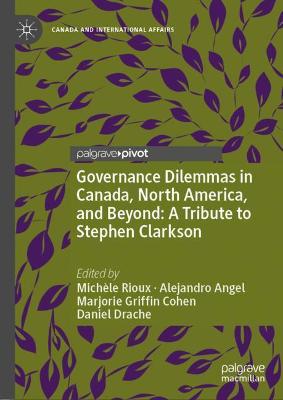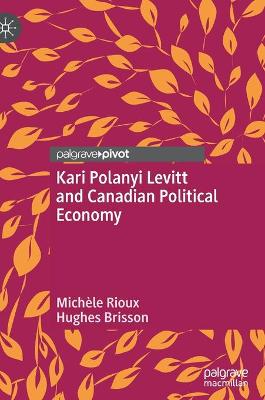Canada and International Affairs
2 total works
Governance Dilemmas in Canada, North America, and Beyond: A Tribute to Stephen Clarkson
by Michele Rioux, Alejandro Angel Tapias, Marjorie Griffin Cohen, and Daniel Drache
This book discusses the development of Canadian political economy through the legacy of Stephen Clarkson, who for over 40 years analyzed the challenges that economic changes brought to the economic governance of Canada, North America, and the world. Tracing the main themes of Clarkson scholarship, it explores in four sections how changes in the global economy, such as regional and inter-regional trade agreements, impact the political economy of Canada and North America, the focus of most of Clarkson’s works, without leaving aside the rest of the world. The book is divided in four main sections that correspond to Clarkson’s scholarly contributions. The epilogue takes a personal tone and presents how the legacy of Stephen Clarkson serves as an inspiration for scholars facing a different world.
Kari Polanyi Levitt and Canadian Political Economy
by Michele Rioux and Hughes Brisson
This book acts as a tribute to the legacy of the Canadian political economist Kari Polanyi Levitt, daughter of Karl Polanyi, one of the great economists of the 20th century. Polanyi Levitt’s life and work were devoted to understanding the scientific and political challenges that humanity faces and the incredible impacts of development, trade, and globalization in their diverse manifestations, including in the context of the current COVID-19 pandemic. This book reflects on Polanyi Levitt’s conviction that the solution to contemporary challenges lies not in the development of sophisticated technologies, but in questioning how we want to live with each other and working to re-embed the economy in the wider social system. Ultimately, the book contends that Polanyi Levitt’s message is simple: humanity must rethink the way we live in this world our place in the universe, and our relationship with nature. Drawing on a 10-year research project encompassing interviews and literature review, this short volume introduces and celebrates Kari Polanyi Levitt's legacy and invites political economists to engage with her work.

